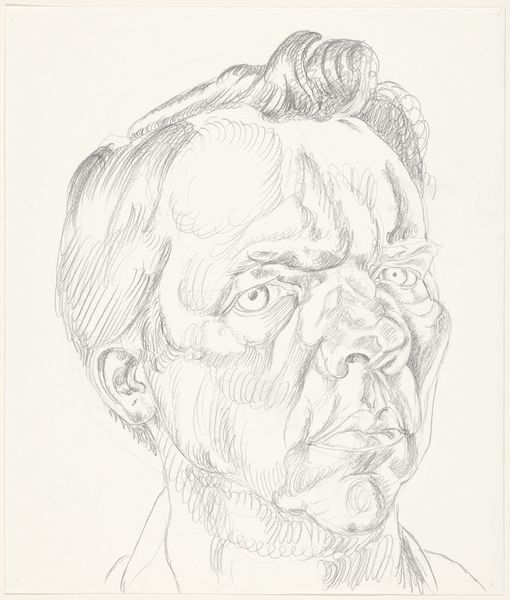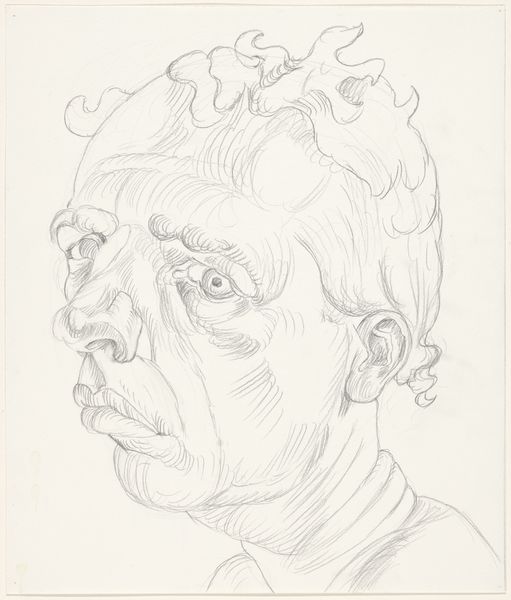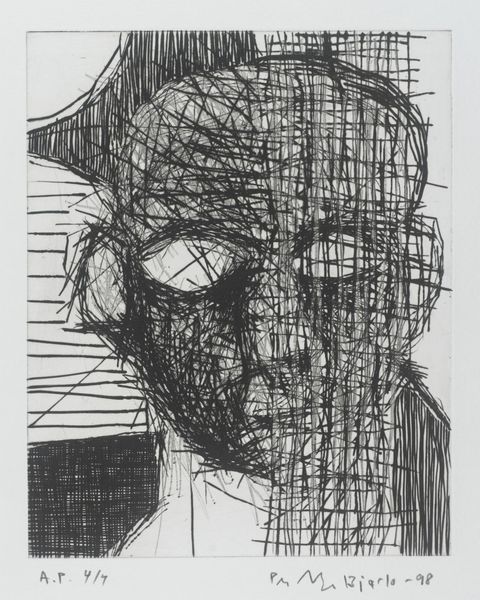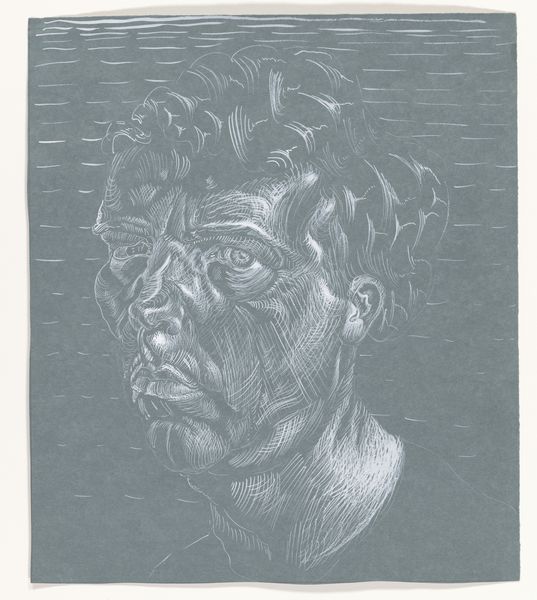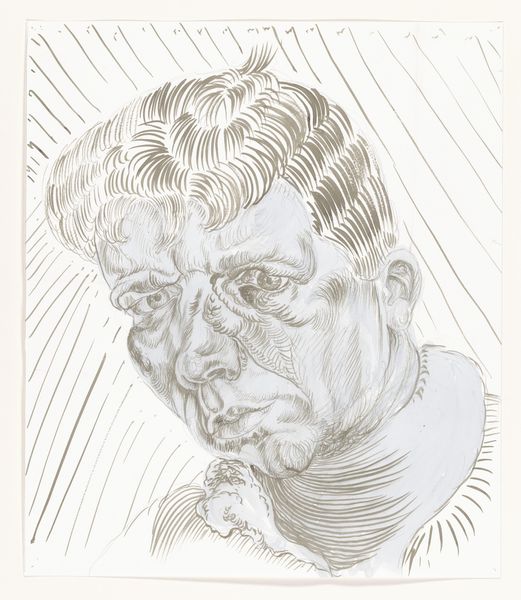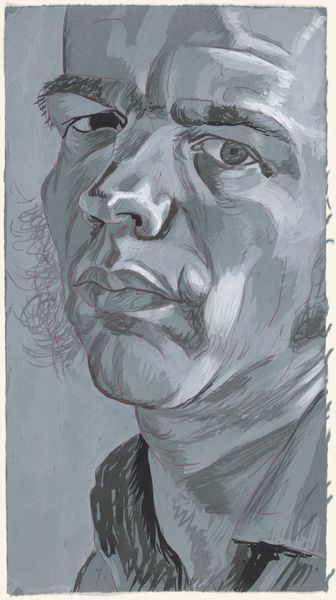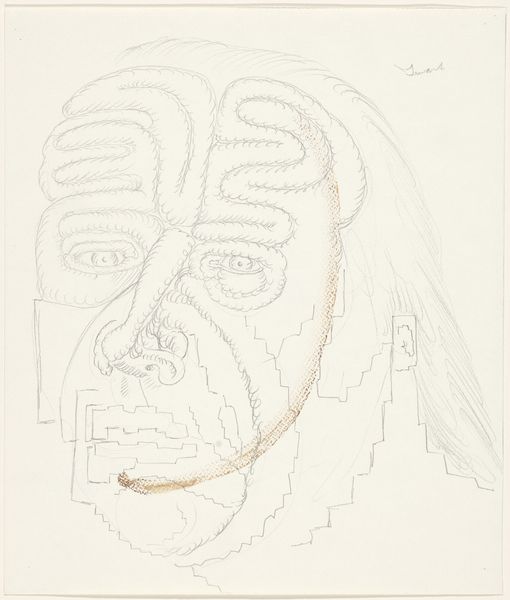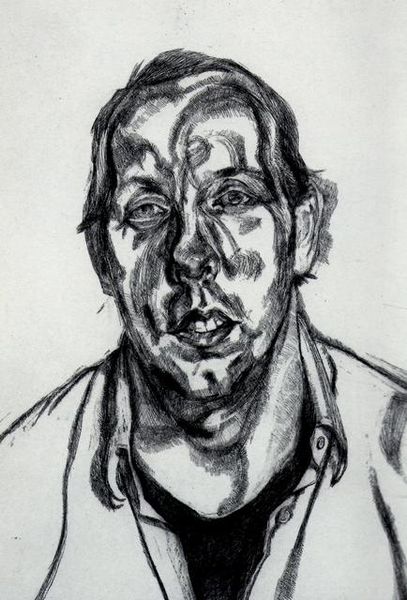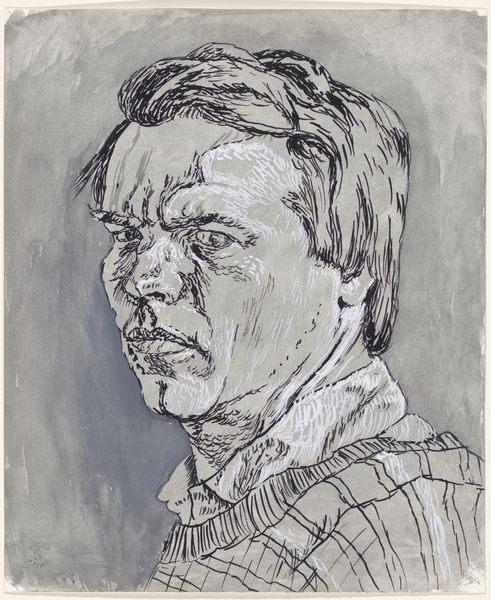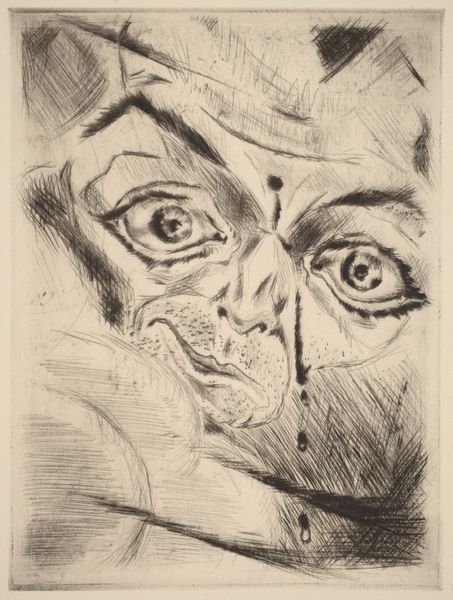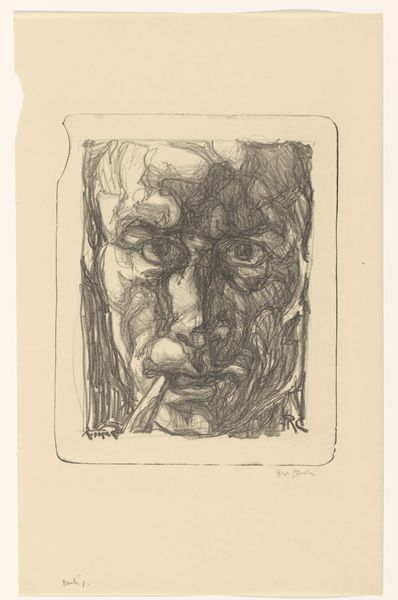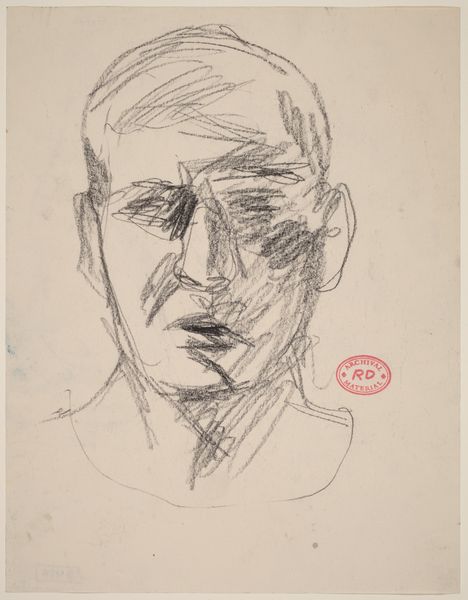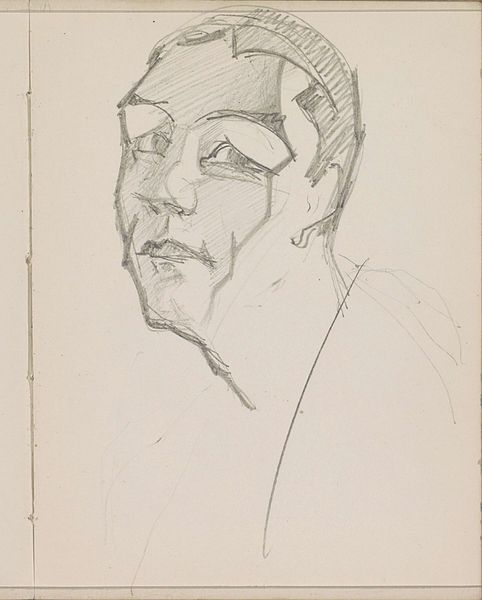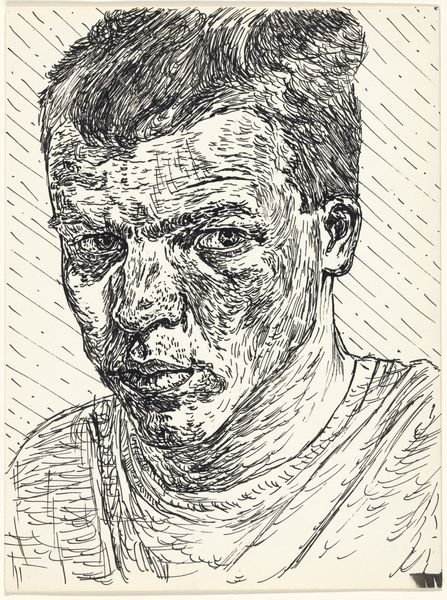
drawing, pencil
#
portrait
#
drawing
#
facial expression drawing
#
self-portrait
#
pencil sketch
#
figuration
#
portrait reference
#
pencil
#
line
#
animal drawing portrait
#
portrait drawing
#
facial study
#
facial portrait
#
portrait art
#
fine art portrait
#
realism
#
digital portrait
Dimensions: height 500 mm, width 430 mm
Copyright: Rijks Museum: Open Domain
Editor: This is Philip Akkerman’s “Zelfportret,” a pencil drawing from 1994. The intensity of the facial expression is what really grabs me. What are your initial thoughts on this self-portrait? Curator: The unflinching gaze, the almost confrontational expression—it’s a powerful statement. Considering the date, 1994, we can see it as an assertion of self during a time when identity politics were becoming increasingly foregrounded in art. Think about how artists were grappling with representation and challenging conventional notions of portraiture. Does the seemingly grotesque nature of the piece seem intentional to you? Editor: Definitely. The exaggerated features, the visible lines...it almost feels like a caricature, pushing beyond a simple representation. How might that relate to these politics you mention? Curator: The "grotesque" can be a powerful tool for subversion. It challenges beauty standards, societal expectations of presentation, and disrupts the male gaze inherent in traditional portraiture. This can serve as commentary on societal pressures and perhaps even the artist’s internal struggles. Editor: So, it's less about vanity and more about confronting the viewer? Curator: Precisely. Consider the labor of the pencil marks, it acts as both a challenge to aesthetic conventions but also an expression of relentless self-examination. How might that examination be critical to our culture's broader issues concerning gender and the role of masculinity in constructing art and expression? Editor: I hadn’t considered it that way. It’s a good reminder that art isn't created in a vacuum. It helps me to connect the themes to the cultural context it comes from. Curator: Exactly! By delving deeper into the historical, social, and theoretical frameworks, we uncover layers of meaning and empower ourselves to engage with art critically. It also illustrates a refusal of simple answers in favor of radical, honest self-portrayal.
Comments
No comments
Be the first to comment and join the conversation on the ultimate creative platform.
